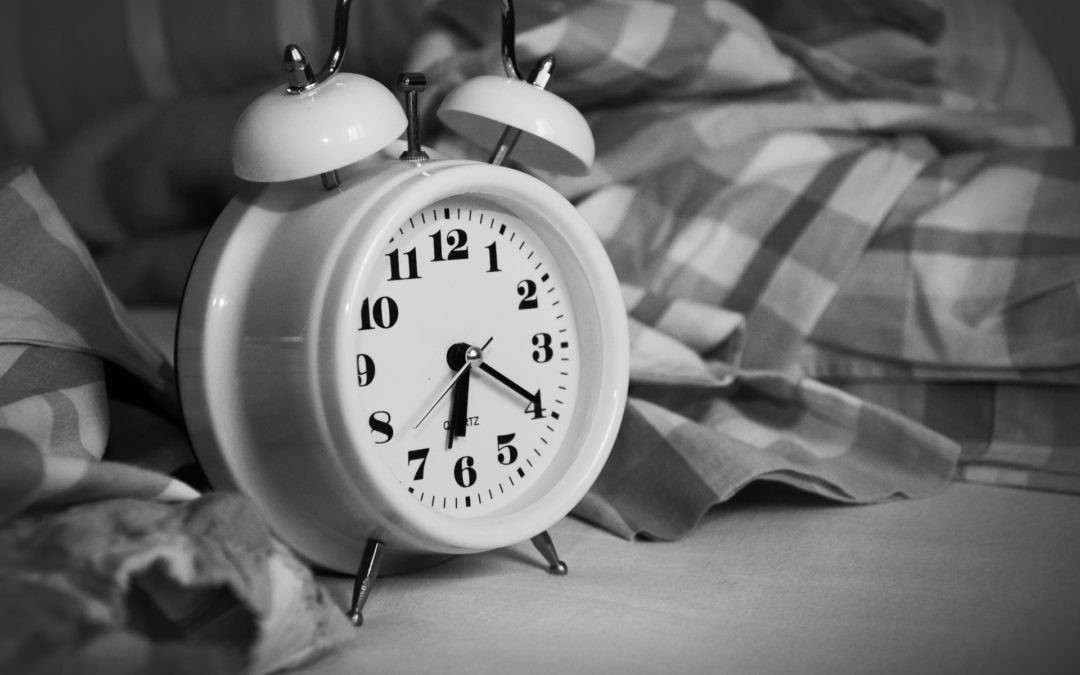We all have heard how important it is for our body to have appropriate sleep. It’s restorative, rebuilding, healing, and physically necessary. But what if you are trying to go to bed and just can’t fall asleep? Do you lay awake at night, with your head spinning about the events of the day and what is to come tomorrow? Many of us have trouble falling asleep at night. Or we may fall asleep easily, but then wake up in the middle of the night. Why does this happen?
Our bodies have a built-in rhythm to them, thanks to our hypothalamic-pituitary-adrenal axis (HPA Axis). These glands signal in sequence and provide a feedback system to the body. The hypothalamus and pituitary provide instructions to our adrenals. Cortisol, a steroid hormone, which is produced by the adrenals, has been dubbed “the stress hormone”, because it is released as part of the stress response. It also plays a crucial role in the sleep-wake cycle. Cortisol normally peaks in the morning about 40 minutes after waking up, in response to instructions given by our HPA Axis. (Ideally, the cortisol rise in the morning will wake us up naturally, and we shouldn’t have to rely on a blaring alarm clock.) After that initial morning surge, our cortisol levels are meant to taper off during the day, gradually lowering throughout the evening. While cortisol normally decreases throughout the day, melatonin (our sleep hormone) increases over the course of the day, making us nice and drowsy in the evening, preparing us for sleep. At midnight, our cortisol levels are normally at the lowest point. Cortisol slowly begins to rise after midnight, until we hit that peak point again in the morning in which it wakes us up. This cycle is known as our diurnal cortisol rhythm.
So if our bodies have this built-in alarm clock for the sleep-wake cycle, why do so many of us have trouble waking up in the morning and trouble falling asleep at night? Back to the HPA Axis… If there is Dysregulation of the HPA Axis (HPA-D), sleep difficulty may occur. The most common way that HPA-D occurs is through chronic stress. And chronic stress can increase cortisol production which can impact our sleep.
Stress can present itself either physically or emotionally. The body does not differentiate between the two. If you are in a stressful job, relationship, get into an argument with a friend… your body’s stress response to these events is similar as to if it was physically injured or sick. Your body can also perceive stress when it is not receiving the necessary nutrients it requires, or when irritants (ex: food sensitivities) are present.
Blood sugar dysregulation is another stressor on the body. For example, eating processed, non-nutritious foods, and eating within three hours of going to bed can set us up for a blood sugar surge in the middle of the night, followed by a blood sugar crash. Hormones are released telling your body to eat. You wake up in the middle of the night feeling hungry. If blood sugar levels remain elevated throughout the night, (or insulin resistance is occurring, for example), cortisol may be higher than normal and you guessed it-you wake up.
Chronic infection, illness, or food sensitivity can also present as stress. If your immune system is activated because your body is fighting a battle against an invader, your cortisol output could be higher than normal, and this can disrupt your sleep.
So great, now you know a few reasons why you may have trouble drifting off to dreamland, but what can you do about it? Here are 5 simple steps to incorporate into your routine to get a better night of sleep:
- Use nature’s cues. Start your day off with a little sunlight. The morning sun casts a blue light, stimulating the awakening response. The setting sun produces a higher amount of visible red light, calming us down and preparing us for sleep. Plan to go to bed by 10:30pm. No joke. If you are a night owl, adjust your bedtime 15 minutes earlier every night until you have reached a 10:30 bedtime.
- Plan to be finished eating for the day by 7:00pm. Eat a well-balanced dinner which includes adequate high quality protein, healthy fats and vegetables as your source of carbohydrates. Avoid processed and refined carbohydrates. As mentioned above, refined carbohydrates can mess with your blood sugar, which can cause night waking.
- Practice breathing exercises before bed. It may sound silly, but this works. Seal your lips and slowly breathe in and out through your nose. Breathe in through your nose about a half of a breath (about 2 counts). Exhale the air out of your nose completely and hold your breath for four counts. Repeat this exercise four times in a row. Make sure your inhalations and exhalations are through your nose, and they are done in a gentle manner, so that you cannot hear yourself breathing. Continue to breathe in and out through your nose slowly, calmly and quietly. This will shift your body into a parasympathetic state, which is the state of relaxation.
- Exercise early in the day, and preferably have your workout completed four hours prior to bed. Ok. I realize that we all have different schedules and that exercise is a critical component to health. What I am saying is that intense exercise can increase your cortisol production. And if you are doing an intense evening exercise, chances are that it could be impacting the quality of your sleep.
- Create a to-do list for tomorrow’s tasks prior to going to bed so that it’s done and you can leave it for tomorrow. Instead of worrying about those tasks in bed, try coming up with three things you are thankful for in your life, or you can meditate, or pray.
Now, turn off your device and go get some restorative and much-needed zzzzzzzzzzz’s.
Resources:
https://kresserinstitute.com/adrenal-fatigue-hpa-axis-dysregulation/
https://www.thesleepdoctor.com/how-to-sleep-better/
http://buteykoclinic.com/anxiety/
https://blog.bulletproof.com/light-hacking-for-better-energy-mood-and-performance/
This information is being provided to you for educational and informational purposes only. It is being provided to you to educate you about healthy eating and living and as a self-help tool for your own use. It is not medical or psychological advice. This information is to be used at your own risk based on your own judgment.
For my full Disclaimer, please go to https://yourepicgenetics.com/index.php/disclaimer/


Recent Comments